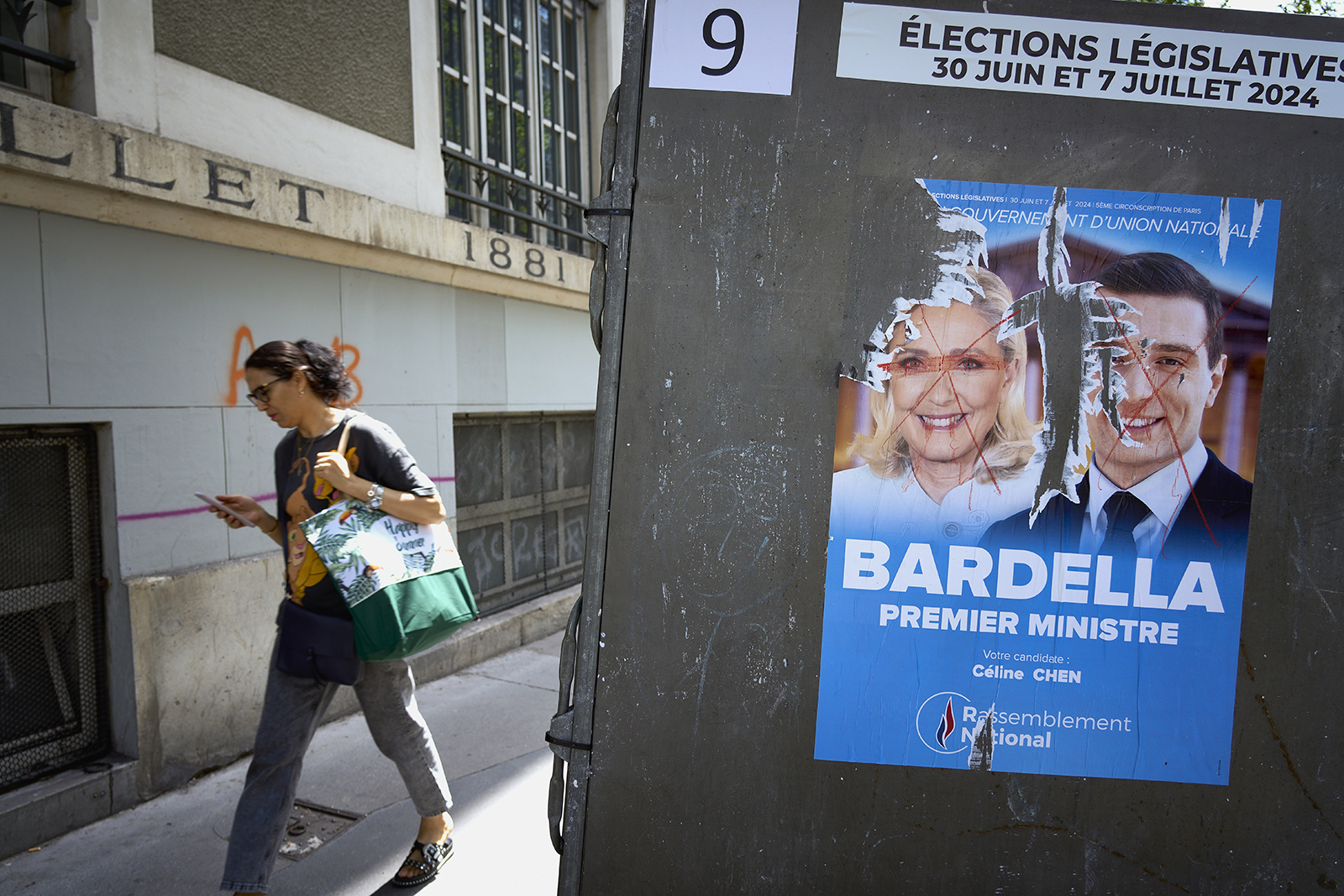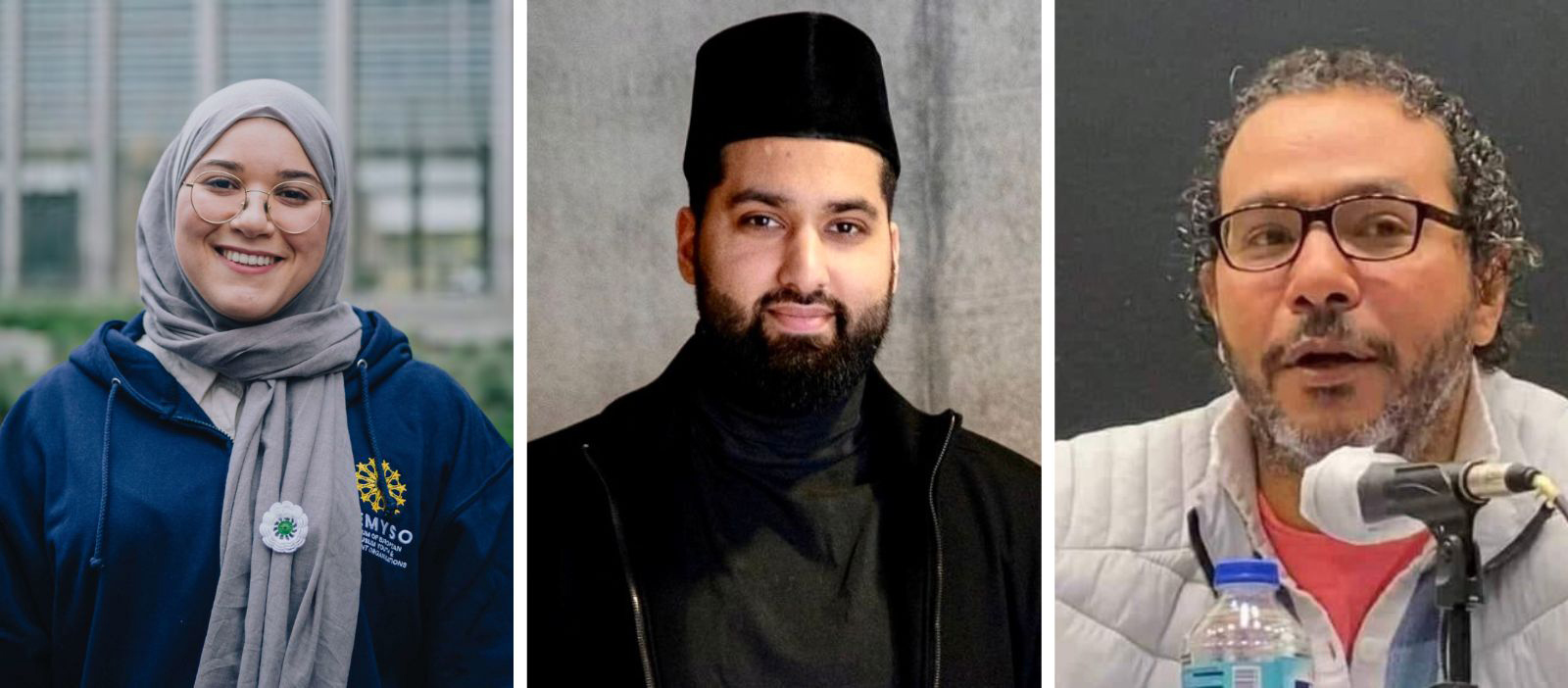How a new UK government could help Muslims across Europe
With the far-right making gains across the EU, we asked prominent European Muslims whether a new UK government could change the conversation about migration
–

As UK voters head to the polls on 4 July to elect the country’s next government, the result is being closely watched by European Muslims. With the election heavily framed around illegal and legal migration to the UK, it also offers a new government an opportunity to defend the multicultural model that once put the UK on the map as diverse and inclusive.
A change in government could act as a counter-balance to Europe’s rightward swing, which has seen anti-Muslim leaders such as Dutch politician Geert Wilders gain a hold, and far-right parties make serious gains in France and Germany during recent EU elections. A recent poll by Hyphen and Savanta showed that 63% of surveyed Muslims are planning to vote for Labour, and the party is currently expected to snap up 40% of all votes. The French, meanwhile, are voting in historic numbers for the anti-Islam National Rally, with the far right party poised to form a government after the second round of voting in a snap election on July 7.
Hyphen spoke to a number of European Muslim thought leaders and authors to get a sense of how the UK election could affect Muslim communities across the continent. Hania Chalal is the president of the Forum for European Muslim Youth and Student Organizations (FEMYSO) based in Strasbourg; Scharjil Khalid is the imam of the Khadija Mosque in Berlin; and Ahmad Abdulatif is an Egyptian novelist based in Madrid.
Answers have been edited for length and clarity.

How do you think a new government in the UK will — or will not — affect Muslims in Europe?
Hania Chalal: The recent EU election results indicate an increase in support for far-right parties, which is highly worrying because they have built their campaigns on anti-Muslim rhetoric. The direct impact on Muslim youth is an increase in the problematisation of what it means to be Muslim, especially for youth at a vulnerable age when they are still building their identity as citizens and as Muslims.
Scharjil Khalid: The opinion is, very surprisingly, hopeful because the Muslim community in the UK is so strong and diverse that it’s hard to imagine that any government can restrict the rights of Muslims. On the other hand, nobody was really expecting Brexit, but it still passed. Everything can happen in these times where we see a shift towards the right in Europe and the whole world. Recent polls show that the right-wing party Reform UK is growing and if they get into government, that would be a big problem.
Ahmad Abdulatif: I don’t think a new UK government can change the difficult situation, either in the UK or in Europe. The root of the problem is in the language: calling immigrants “Muslims” and not Turkish, Moroccan, or whatever nationality they might be. When Europeans come to the Middle East they are not called Catholic or Christian. This classification on the basis of religion needs to change.
In a post-Brexit world, what can Muslims in Europe hope for in a new UK government?
Hania Chalal: We would like to see the new government paving the way in the fight against Islamophobia and bigotry. I would love to see a strong stance against Islamophobia and all forms of racism. There is a need to actively protect the rights and freedoms of all citizens, including religious and ethnic minorities. We would also like increased representation of Muslims in the UK government, which would be seen as a positive sign by Muslims in other European societies.
Scharjil Khalid: Post-Brexit, some relatives cannot visit family in the UK as easily as before. So the hope is that would change, along with the asylum system. But when I speak to UK diplomats, they’re not really hopeful and recent polls show that most people are voting for parties in favour of Brexit.
Ahmad Abdulatif: I don’t expect anything because as long as “the Muslims” are thought of as a problem, nothing will change. The African and Asian Muslims are humans, citizens, workers, scientists, students and doctors — they enrich the social fabric. Once a European is able to forget about the religion of an immigrant and treats them as equals, only then will we be able to solve any problems.
What do you hope the next leader of the UK will do to elevate Muslim affairs and interests not only in the UK but also abroad?
Hania Chalal: One of the first steps would be to acknowledge and take concrete actions against Islamophobia. The UK has always been — in the eyes of other countries — this amazing land where multiculturalism is at the forefront. We see a lot of people, including in my country, France, hoping to find jobs in the UK, but will the new UK government play a role? That will depend on the political will to take concrete action against Islamophobia, which is highly needed at the European level. We need strong voices inside the EU but also outside of the EU as it’s a global issue.
Scharjil Khalid: The immigration issue is a big one for Muslims because nearly everybody has some relatives or friends who have come from Muslim countries without democracy or basic human rights. It would have a big impact on Muslims if the next leader would pass more restrictions regarding immigration. For example, the Rwanda asylum plan, which is very shocking for many Muslims because it will affect them directly. And Germany has also agreed to consider processing asylum applications abroad. It’s not only a UK problem, but a European one.
In the face of rising islamophobia and hate crimes across Europe, what could a new UK government do to respond to the situation?
Hania Chalal: One effective measure would be the recognition of Islamophobia as a distinct form of racism. We want to see rigorous enforcement of legislation against hate crimes and discrimination, and mechanisms to assess the scope of the issue, which tends to be highly underestimated. The new government should take a strong stance against the violation of fundamental rights, vocally oppose Islamophobia and advocate for the implementation of effective frameworks to combat all forms of Islamophobia, from the individual to the organisational level.
Scharjil Khalid: Just last week, Germany published a report on Islamophobia and started a campaign against it. Now you see posters and banners on trains and in the streets. It would be great for the new UK government to launch a similar campaign to show how dangerous it is and how it affects the everyday lives of Muslims.
In Germany, we also have workshops in schools and universities to teach students about Islamophobia and how it’s impacting Muslims, especially since the war in Gaza. We are talking a lot about far-right extremism and anti-Semitism, so everybody knows that is a big problem, but we are not talking that much about Islamophobia across society.
Ahmad Abdulatif: I’m worried about the rise of the far-right in Europe, and I borrow the words of Rishi Sunak: “The world is the most dangerous it’s been since the Cold War.” But this danger actually comes from discrimination, intolerance and inequality, rather than economic reasons. We need to create social integration programmes and make it easier for immigrants to access job opportunities, but also treat a Pakistani like an American would be treated. Without this, we will certainly be in a dangerous place.
Topics
Get the Hyphen weekly
Subscribe to Hyphen’s weekly round-up for insightful reportage, commentary and the latest arts and lifestyle coverage, from across the UK and Europe
